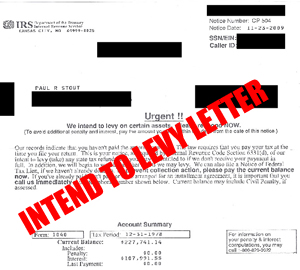Malaysia has extradited a former Goldman Sachs banker to the United States for 10 months to face criminal charges linked to a multibillion-dollar scandal.
Roger Ng has been detained in Kuala Lumpur since Nov. 1, 2018 after the US Department of Justice (DoJ) announced charges against him for allegedly laundering funds diverted from the 1Malaysia Development Berhad (1MDB) fund while he was managing director of Goldman Sachs.
A Malaysian national, Ng Chong Hwa, 46, also known as “Roger Ng,” has been extradited from Malaysia to the United States to face charges of conspiring to launder billions of dollars embezzled from 1Malaysia Development Berhad (1MDB), Malaysia’s investment development fund, conspiring to violate the Foreign Corrupt Practices Act (FCPA) by paying bribes to multiple government officials in Malaysia and Abu Dhabi, and conspiring to violate the FCPA by circumventing the internal accounting controls of Goldman Sachs.
In a three-count indictment unsealed last year, Ng, of Kuala Lumpur, Malaysia, was charged with crimes he allegedly committed while employed as a Managing Director at Goldman Sachs "the Financial Institution", which underwrote more than $6 billion in bonds issued by 1MDB in three separate bond offerings in 2012 and 2013.
As alleged in the indictment, between approximately 2009 and 2014, Ng conspired with others to launder billions of dollars misappropriated and fraudulently diverted from 1MDB, including funds 1MDB raised in 2012 and 2013 through three bond transactions 1MDB executed with the Financial Institution. As part of the scheme, Ng and others conspired to bribe government officials in Malaysia and Abu Dhabi to obtain and retain lucrative business for the Financial Institution, including the 2012 and 2013 bond deals. They further conspired to launder the proceeds of their criminal conduct through the U.S. financial system.
Court filings further allege that Ng, Low Taek Jho, also known as “Jho Low,” and the co-conspirators used co-defendant Low’s close relationships with high-ranking government officials in Malaysia and Abu Dhabi to obtain and retain business for the Financial Institution through the promise and payment of hundreds of millions of dollars in bribes.
In the course of executing the scheme, Ng and others at the Financial Institution conspired to circumvent the Financial Institution’s internal accounting controls. Through its work for 1MDB during that time, the Financial Institution received approximately $600 million in fees and revenues along with increased reputational prestige. At the same time, Ng and other co-conspirators at the Financial Institution received large bonuses and enhanced their own reputations at the Financial Institution.
In Total, More Than $4.5 Billion Was Misappropriated From The 1MDB Bond Proceeds.
Low remains at large. The charges in the indictment are merely allegations, and the defendants are presumed innocent until proven guilty beyond a reasonable doubt in a court of law.
Goldman Sachs is under scrutiny for its role as underwriter and arranger of three bond sales that raised $6.5 billion for 1MDB.
The DoJ has estimated that $4.5 billion was misappropriated by high-level 1MDB fund officials and their associates between 2009 and 2014, including some of the funds that Goldman Sachs helped to raise.
Goldman Sachs has consistently denied wrongdoing and said certain members of the former Malaysian government and 1MDB lied to it about how the bond proceeds would be used.
The Department received significant assistance from:
- by the government of Malaysia, including the Attorney General’s Chambers of Malaysia, the Royal Malaysia Police and NCB Interpol Malaysia,
- the Attorney General’s Chambers of Singapore, the Singapore Police Force-Commercial Affairs Division,
- the Office of the Attorney General of Switzerland,
- the Judicial Investigating Authority of the Grand Duchy of Luxembourg and the Criminal Investigation Department of the Grand-Ducal Police of Luxembourg.
The International Unit of the Criminal Division’s MLARS is home to the Kleptocracy Asset Recovery Initiative a team of dedicated prosecutors working to prosecute individuals and forfeit the proceeds of foreign official corruption that has affected the U.S. financial system and, where appropriate, return those proceeds to benefit the people harmed by these acts of corruption and abuse of office.
MLARS’s Bank Integrity Unit investigates and prosecutes banks and other financial institutions, including their officers, managers, and employees, whose actions threaten the integrity of the individual institution or the wider financial system.
Have a IRS Criminal Tax Problem?
 Contact the Tax Lawyers at
Contact the Tax Lawyers at
Marini& Associates, P.A.
for a FREE Tax HELP Contact Us at:
orToll Free at 888-8TaxAid (888) 882-9243
Sources
DoJ
NY Post
US News














